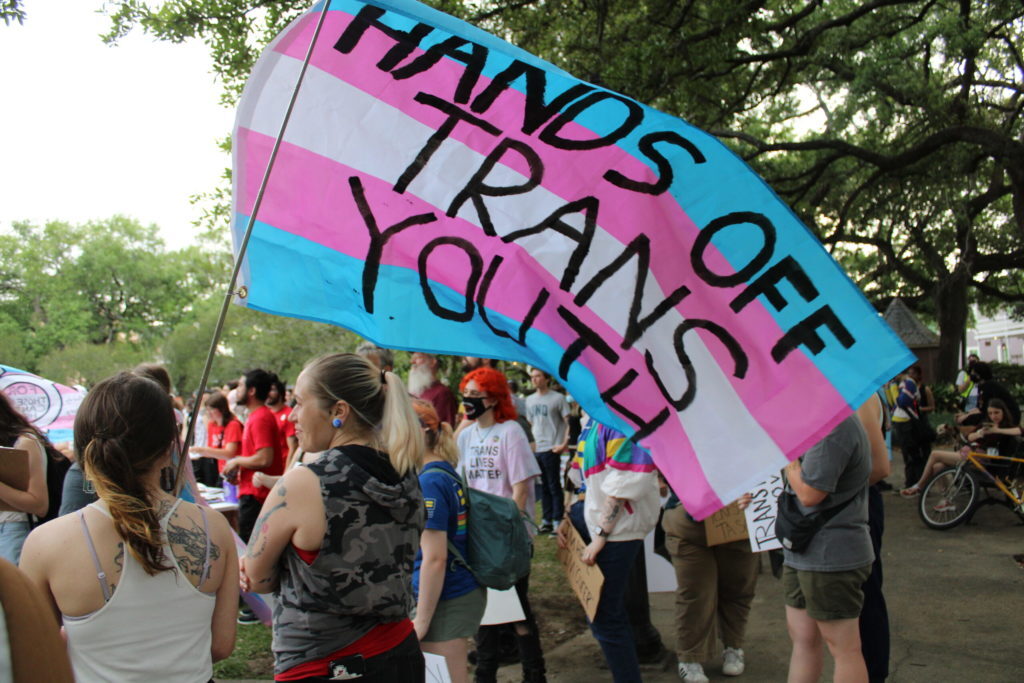For the last two years, Koen has routinely self-administered weekly testosterone injections without a second thought.
During that time, the trans 17-year-old said his self-image and school and family life has drastically improved. His fear of needles, too, has faded.
“[Transitioning] made me look forward to things more because now I can start paying attention to the better version of myself,” said Koen, who asked to be identified by his first name because of fears for his safety. “It’s something I feel like I’ve needed for a while. I’m able to express myself more fluidly and feel comfortable doing that, which I think is a very big step for me right now.”
At the start of the year, though, a greater worry emerged.
A new law banning gender-affirming care for minors in Louisiana took effect on Jan. 1 prohibiting puberty blockers, hormone treatment, and gender-reaffirming surgery. Now, Koen isn’t sure he could continue his hormone treatment.
Louisiana is one of 22 other states that have enacted laws restricting or banning gender-affirming medical care for minors, disrupting health care needs for trans and nonbinary people.



The rate of kids that don’t transition after being on puberty blockers is something like <2%. All I’ve seen is some people crying about regret rates increasing by a lot when it goes from like 1 to 2%. “It doubled!!!” (Should be obvious that it will go up a little the easier it is to get treatment).
In any case, while puberty blockers aren’t without adverse effects, those aren’t huge, so prohibiting them is utterly nonsensical unless a majority of kids end up not going through with it.
And if a child knows at age 7 that it’s not the gender it was assigned at birth, that’s not some puberty thing. Which is a significant portion of transgender people.